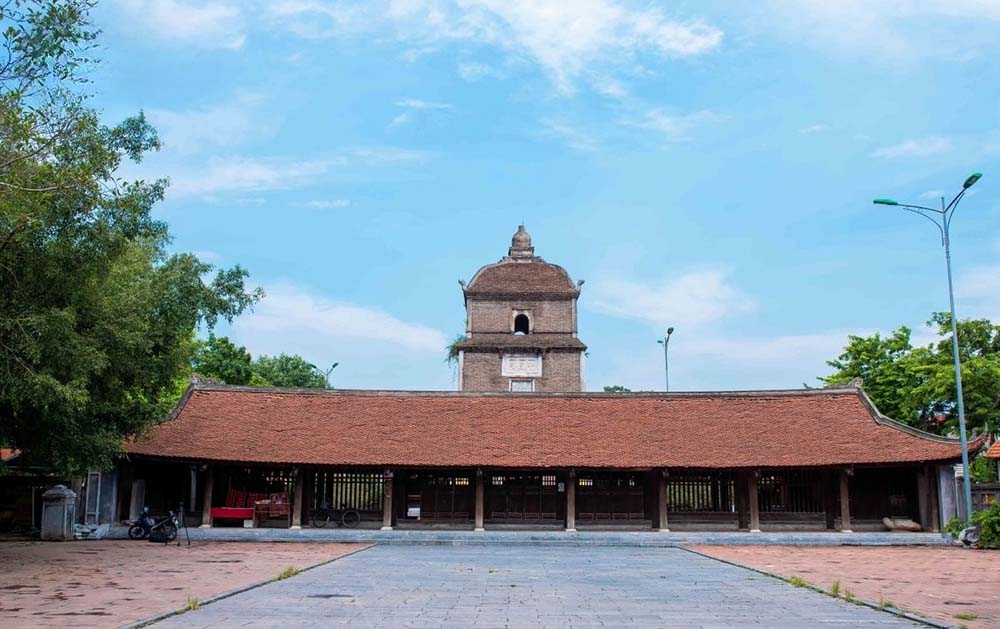
1. Where is the Dau Pagoda Festival held? Festival time
Dau Pagoda Festival is held annually from April 8 to 9 of the lunar calendar on a large scale in three communes of the Dau - Luy Lau area (in Thuan Thanh district, Bac Ninh province today): Thanh Khuong, Tri Fruit and Ha Man. The festival is held in four large pagodas worshiping Tu Phap, including: Phap Van, Phap Vu, Phap Loi, Phap Dien and To pagoda worshiping Mrs. Man Nuong (mother of Tu Phap). Among them, Dau Pagoda is used as the festival center.
2. Origin and meaning of Dau Pagoda festival
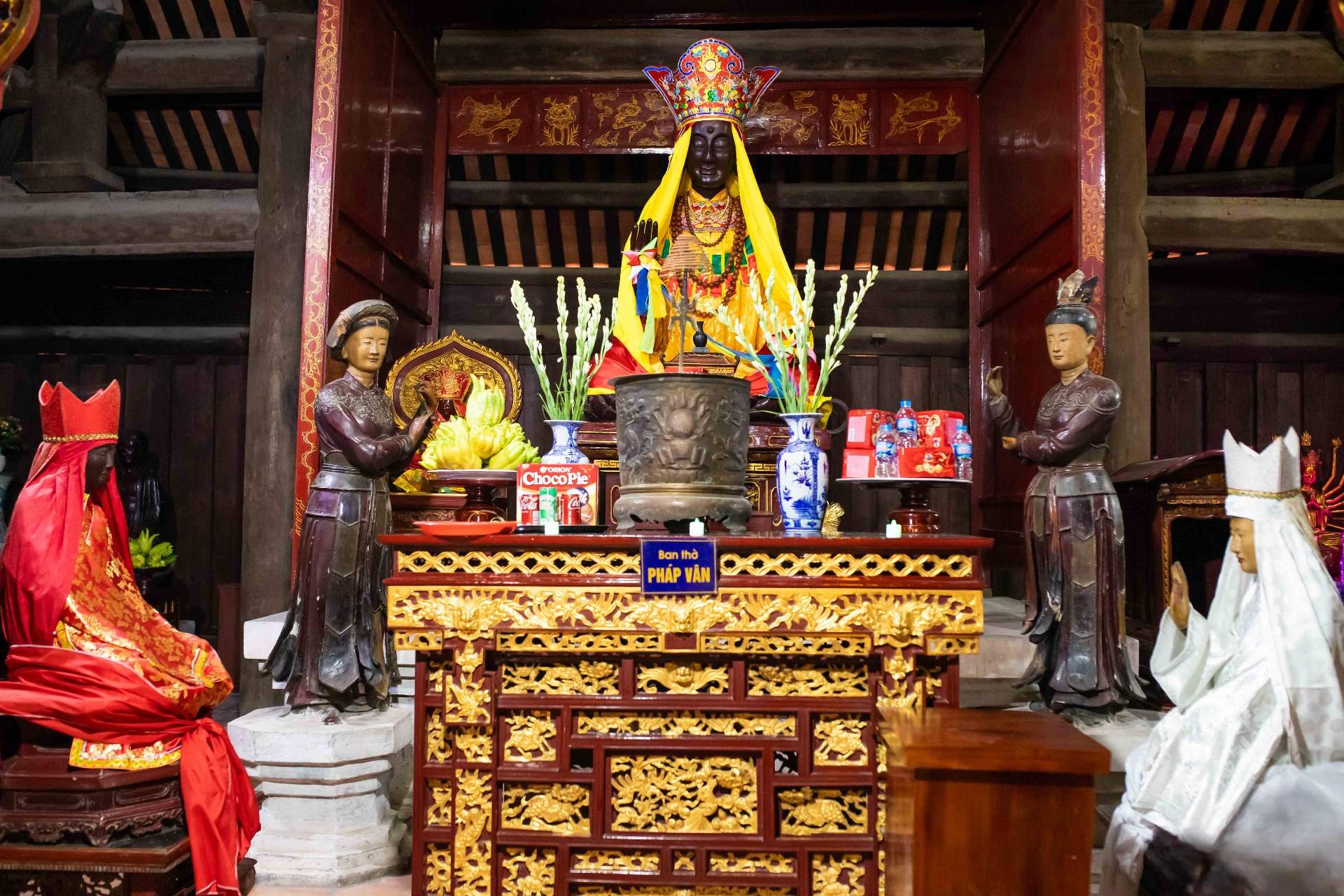
According to the explanations about the Dau Pagoda Festival, the pagoda was built under the reign of Thai Thu Si Nhiep in 187 and completed in 226. According to writer Nguyen Huu, who researched deeply about the origin of the pagoda festival Dau said: Si Nhiep was the one who had the merit of teaching literacy to people in the area. Therefore, every year on the 8th day of the 4th lunar month (also the birthday of Buddha Shakyamuni), the people of the Dau region organize a procession of Si Nhiep's palanquin and the statue of Princess Ngoc Tien (Si Nhiep's daughter) from Lung Khe temple returns to Dau pagoda to open the festival.
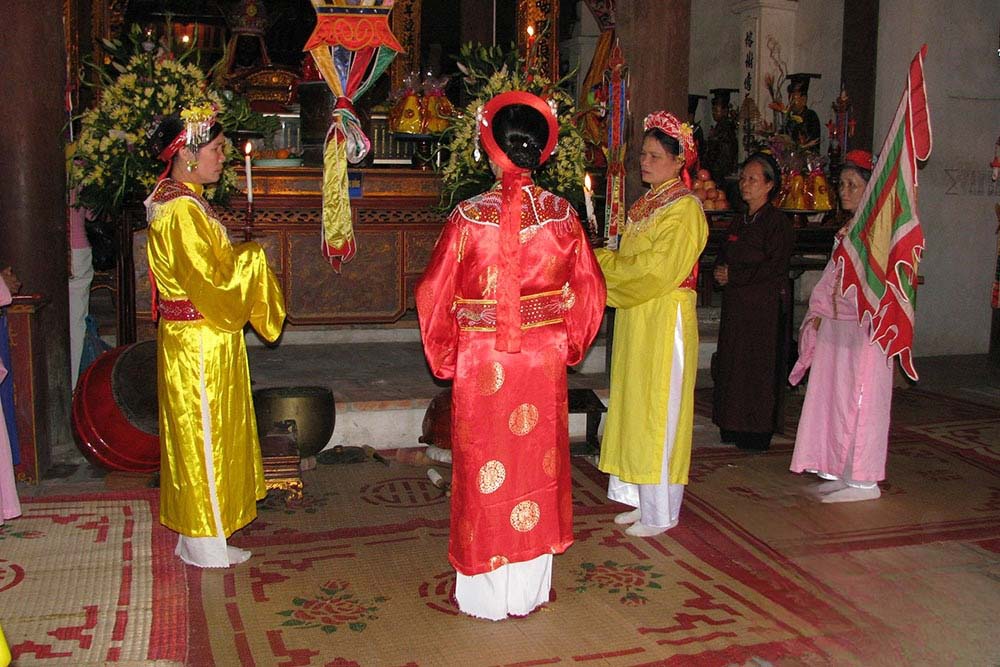
Dau Pagoda Festival in Bac Ninh is considered the oldest of the festivals in Vietnam that still exists today. Dau Pagoda Festival has an important meaning in reviewing historical traditions and good ancient customs. In particular, it also meets spiritual cultural needs and is an opportunity for people to pray for good luck and good weather. From there, we encourage people to unite together to build, preserve and promote a good cultural life.
3. What interesting activities does Bac Ninh Dau Pagoda Festival have?
The Dau Pagoda Festival takes place in a sacred and solemn atmosphere but also no less bustling and vibrant with games and folk performances that are typical of the Kinh Bac region. This has attracted many local people and tourists from all over to participate and learn.
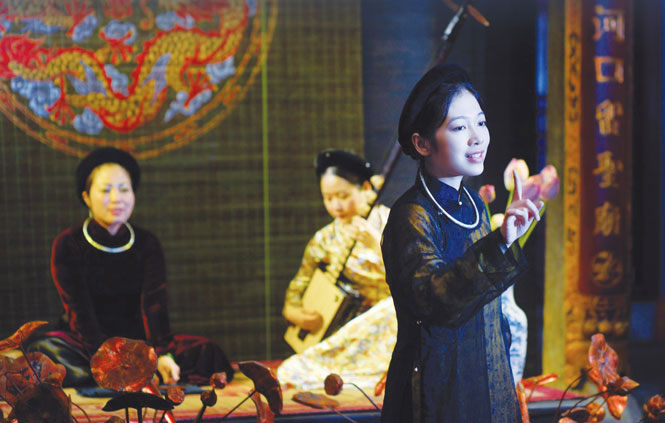
- Witness the solemn ceremony with your own eyes
The ceremony of the Dau Pagoda Festival is held very solemnly. On the morning of the 8th day of the main festival, the people of the villages will organize a procession of the Four Dharma statues from the village pagodas to gather at Dau pagoda. The procession includes flags, fans, horses, parasols, palanquins and bowls of tribute... from all over.
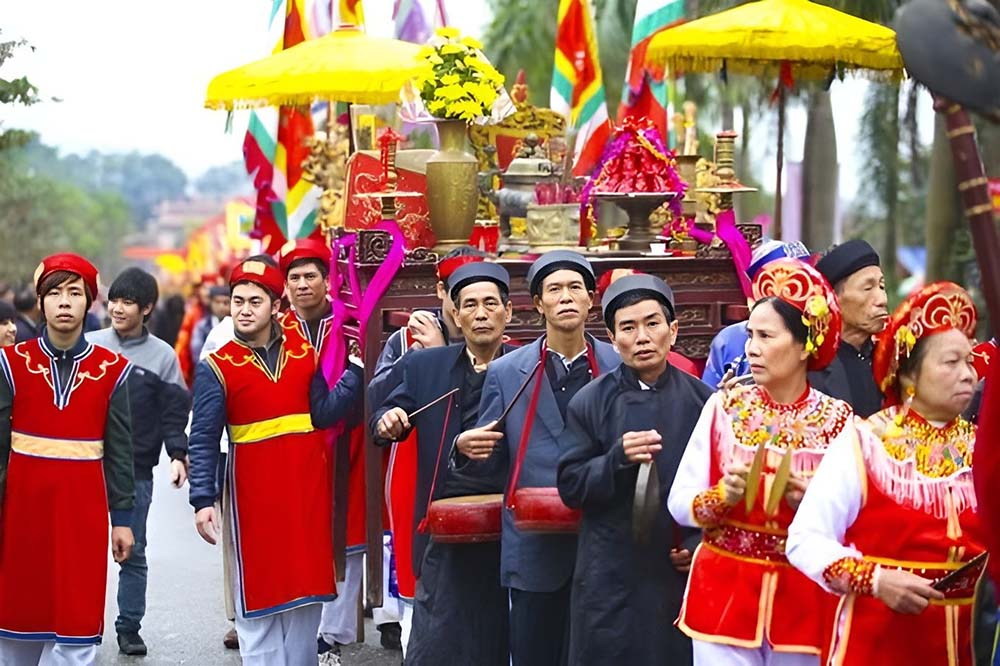
When he arrived at Dau Pagoda, he performed the "Mother chases his child" game and then organized a "water robbery". The "water robbery" contest is a running competition between Mrs. Sam (Phap Loi) and Mrs. Rain (Phap Vu) to see who can finish first to predict the harvest. This is the most unique ritual of the Dau Pagoda festival, widely admired. However, due to many reasons, in recent years, the Dau Pagoda Festival no longer holds this procession.
- Participate in exciting cultural and sports activities in the festival section
Like many other traditional festivals of Vietnam, the Dau Pagoda Festival takes place with many exciting cultural and sports activities. Tourists coming here on this occasion can participate in cheering and experiencing with local people in unique folk cultural activities such as singing Quan Ho on dragon boats, water puppetry, drum singing, literature singing, Chess competition, volleyball competition...
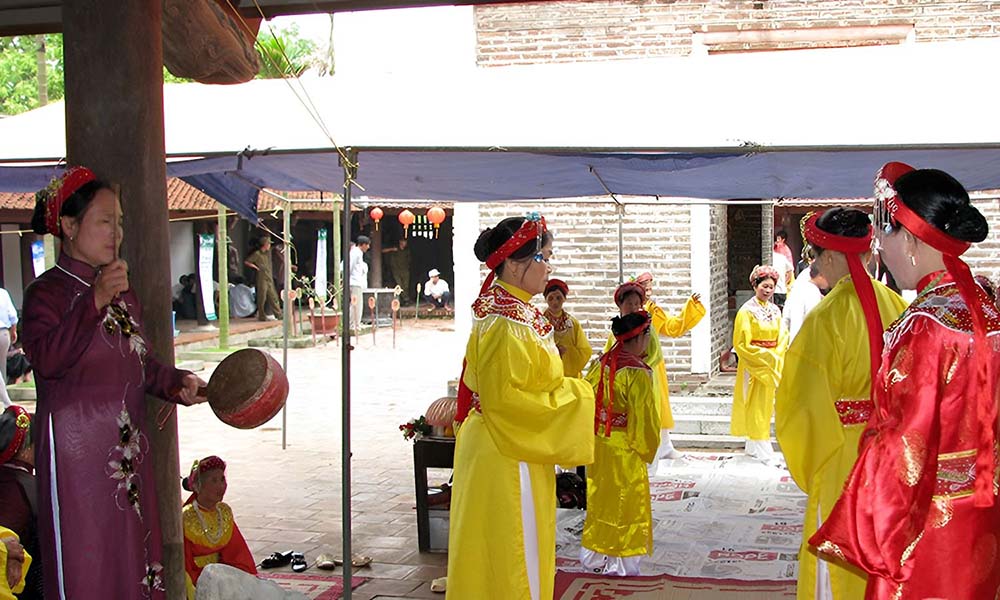
- Visit and worship Dau Pagoda
Although it has undergone many restorations and repairs, Dau Pagoda today still retains its ancient and majestic beauty. Located right in the middle of the pagoda is the 9-storey Hoa Phong tower, but today there are only 3 floors, 17m high, built of large, old-burnt bricks. On the tower is a bronze bell and bronze bell cast in the late 17th and early 18th centuries.
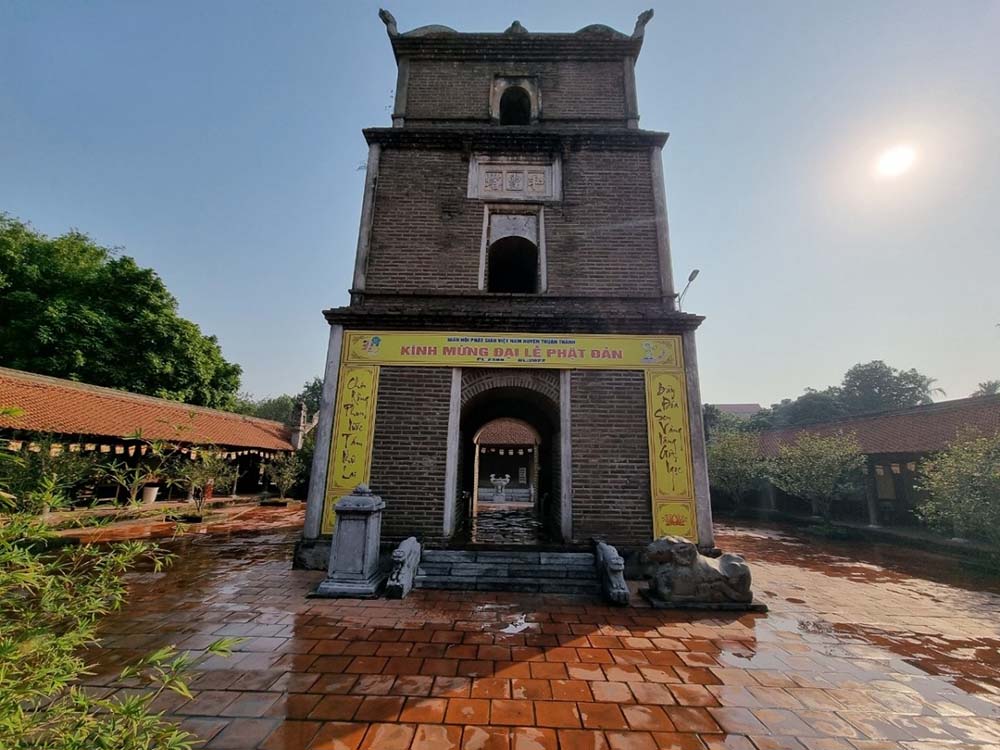
Through Hoa Phong tower, visitors will come to Tien Duong. There are many ancient Buddha statues with intricately designed carvings such as: statues of Dharma Protector, Monsignor, Bat Bo Vajra, Holy Sage... Next is the Upper Palace which looks quiet and solemn. This is a place where visitors can worship and express their respect to the gods who have protected people's prosperous and happy lives.
